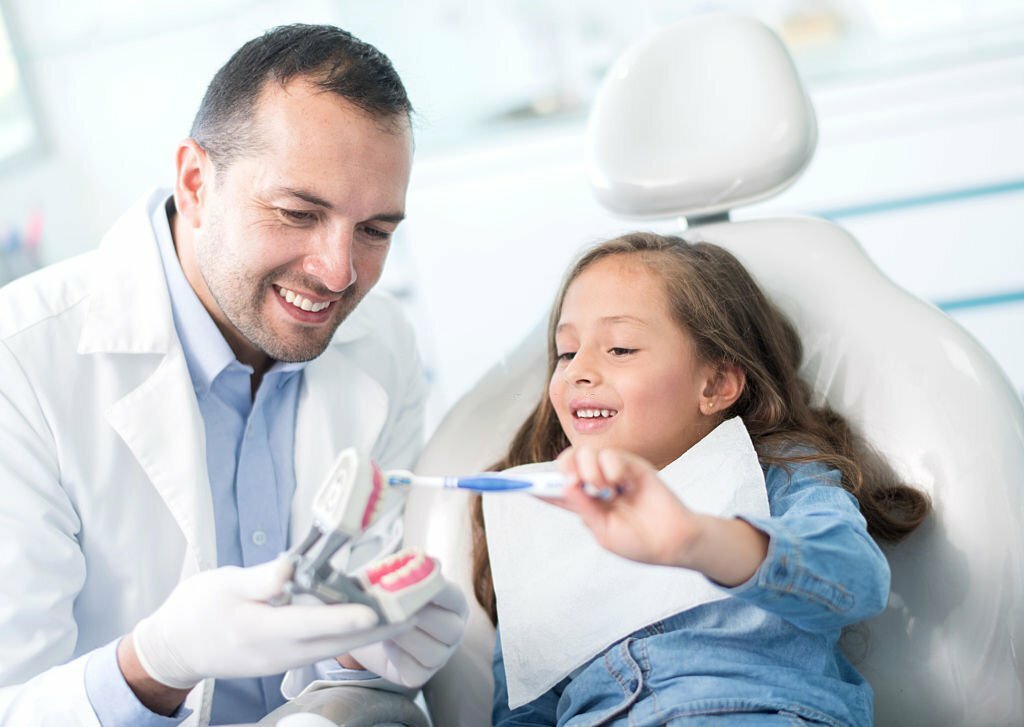
Oral health is a crucial aspect of overall well-being, and this is especially true for children. Pediatric dentistry plays a vital role in laying the foundation for a lifetime of healthy smiles. This article delves into the best practices for children’s oral health, offering parents and guardians essential insights into maintaining and promoting good dental habits from an early age.
The Importance of Early Dental Care
The journey to good oral health begins even before a child’s first tooth appears. Wiping a baby’s gums with a soft, damp cloth helps remove harmful bacteria. The first dental visit should ideally occur by a child’s first birthday or within six months after the first tooth erupts. These early visits not only help in addressing potential dental issues but also set the stage for a child to become comfortable with dental check-ups.
Developing Healthy Dental Habits
As children grow, instilling good dental habits becomes paramount. Parents should supervise and assist with brushing until children are around 7-8 years old. A pea-sized amount of fluoride toothpaste and a soft-bristled toothbrush should be used twice a day. Flossing should begin once a child’s teeth start to touch each other. These habits not only help in preventing cavities but also teach children the importance of oral hygiene.
The Role of Nutrition in Dental Health
A balanced diet is essential for healthy teeth and gums. Limiting sugary snacks and drinks helps reduce the risk of cavities. Encouraging water intake, especially fluoridated water, and incorporating crunchy fruits and vegetables into a child’s diet can promote dental health. Parents should also be mindful of bottle feeding and breastfeeding habits, as prolonged exposure to liquids containing sugars can lead to tooth decay.
Regular Dental Visits and Preventive Care
Regular dental check-ups are vital for maintaining children’s oral health. Dentists can detect and treat problems early, recommend preventive measures like sealants and fluoride treatments, and guide children in their oral hygiene practices. These visits also provide an opportunity for parents to discuss concerns like thumb sucking, teething, or the impact of pacifier use on dental health.
Managing Dental Emergencies
Children are prone to accidents, and knowing how to handle dental emergencies is important. In case of a knocked-out tooth, finding the tooth, holding it by the crown (not the root), and trying to reinsert it in the socket can be crucial. If that’s not possible, keeping the tooth moist in milk or saliva until a dentist can be seen is the next best step. For other injuries like a chipped tooth or a toothache, prompt dental consultation is recommended.
The Psychological Aspect of Pediatric Dentistry
Dental anxiety can start early, and managing this is an integral part of pediatric dentistry. Dentists specializing in children’s dental care are trained to create a friendly, non-threatening environment. Parents can also help by maintaining a positive attitude about dental visits and avoiding using the dentist as a threat for poor behavior.
Pediatric dentistry is about more than just treating cavities; it’s about establishing a foundation for lifelong oral health. By focusing on preventive care, education, and creating a positive dental experience, parents and dentists can work together to ensure that children grow up with healthy, happy smiles. As each child’s dental needs are unique, working closely with a pediatric dentist to tailor a dental care plan is essential for the best outcomes.
This comprehensive guide covers the best practices in pediatric dentistry, emphasizing the importance of early dental care, healthy habits, nutrition, regular check-ups, and managing dental emergencies. It also addresses the psychological aspects of dental visits for children, underscoring the collaborative role of parents and dentists in fostering a lifetime of good oral health.

